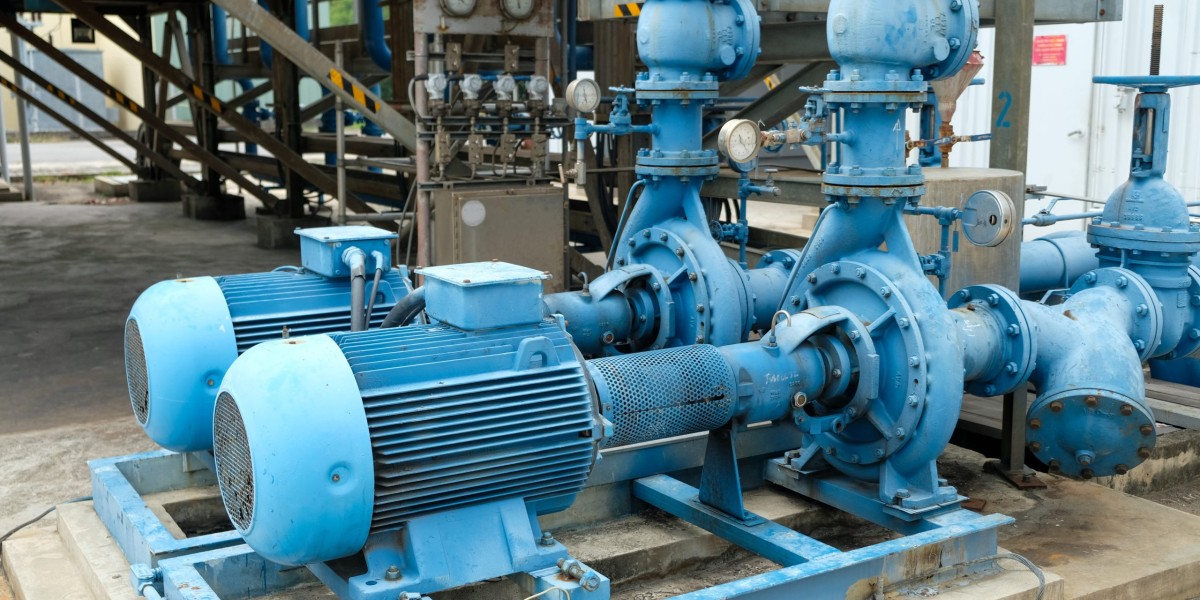industrial centrifugal compressor is a dynamic machine designed to compress air or gas by increasing its pressure and velocity using centrifugal force. It is widely used in industries that require a continuous, high-volume flow of compressed air or gas, such as oil and gas, petrochemical, manufacturing, power generation, and HVAC systems.
What Is an Industrial Centrifugal Compressor?
An industrial centrifugal compressor works on the principle of dynamic compression. It uses a rotating impeller to accelerate the gas, converting kinetic energy into pressure energy as the gas passes through a diffuser. This type of compressor is ideal for high-capacity and high-speed applications, delivering efficient performance with minimal pulsation.
How an Industrial Centrifugal Compressor Works
Air Intake – Air or gas enters the center (eye) of the rotating impeller.
Acceleration – The impeller blades spin at high speed, imparting kinetic energy to the gas.
Diffusion – The high-speed gas enters a diffuser where it slows down, converting velocity into pressure.
Discharge – The high-pressure gas is then delivered to the system or storage.
The entire process in an industrial centrifugal compressor is continuous, making it suitable for applications that demand a steady flow of compressed air or gas.
Types of Industrial Centrifugal Compressors
Single-Stage Centrifugal Compressors
Suitable for low to moderate pressure requirements, often used in HVAC systems and small-scale industrial applications.Multi-Stage Centrifugal Compressors
Designed for high-pressure operations, with multiple impellers in series. Commonly used in large-scale industrial plants, oil refineries, and chemical processing.
Applications of the Industrial Centrifugal Compressor
The versatility and power of the industrial centrifugal compressor make it valuable in many industries:
Oil and Gas – Gas reinjection, pipeline compression, and refinery processes.
Petrochemical Plants – For compressing process gases.
Power Plants – For fuel gas boosting and air separation.
Manufacturing – Used in production lines requiring compressed air.
Chiller Systems – Compressors in large HVAC chillers often use centrifugal technology.
Advantages of the Industrial Centrifugal Compressor
Continuous Operation: Delivers a non-pulsating, steady flow of compressed gas.
High Efficiency: Especially in large-scale or high-flow applications.
Low Maintenance: Fewer moving parts compared to positive displacement compressors.
Space Saving: Compact design with high power output.
Clean Operation: Oil-free configurations are available for sensitive industries like food and pharmaceuticals.
Limitations of the Industrial Centrifugal Compressor
While powerful, the industrial centrifugal compressor has some drawbacks:
Initial Cost: Higher upfront investment compared to other types of compressors.
Complexity: Requires skilled operation and maintenance.
Efficiency Drops at Low Load: Not ideal for fluctuating demand environments.
Conclusion
The industrial centrifugal compressor is a vital component in the infrastructure of heavy industry, where reliability, high efficiency, and continuous operation are essential. Whether in petrochemical plants, refineries, or large manufacturing facilities, choosing the right industrial centrifugal compressor can significantly improve process performance, reduce energy consumption, and ensure long-term operational success.






